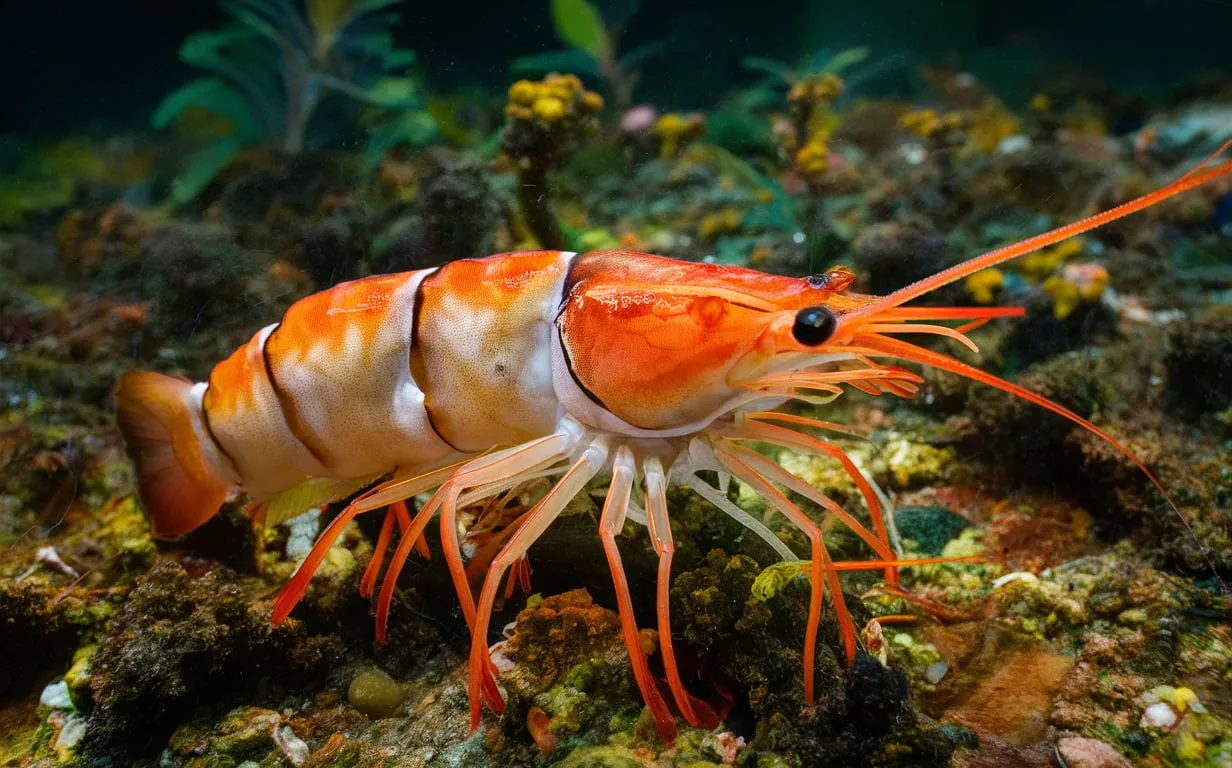Neocaridina shrimp are a captivating group of freshwater crustaceans that have become increasingly popular among aquarium enthusiasts. These tiny, colorful creatures offer a unique and rewarding experience for those delving into the world of planted aquariums and nano tanks. From the vibrant Red Cherry Shrimp to the mesmerizing Crystal Red Shrimp, each species within the Neocaridina genus boasts its own distinctive features and care requirements.
In this comprehensive guide, Betta Fish Tips will embark on an exciting journey to uncover the diverse array of Neocaridina shrimp, their fascinating biology, and the key considerations for successful shrimp keeping. Whether you’re a seasoned aquarist or a newcomer to the hobby, this article aims to provide you with the essential knowledge and insights to navigate the captivating realm of Neocaridina shrimp.

Understanding Types Of Neocaridina Shrimp
Neocaridina shrimp belong to the family Atyidae, a group of small, freshwater crustaceans native to Asia. These shrimp are prized for their vibrant colors, peaceful demeanor, and their ability to thrive in a wide range of aquarium conditions.
Neocaridina Species Diversity
The Neocaridina genus encompasses a diverse array of shrimp species, each with its own unique characteristics and care requirements. Some of the most popular Neocaridina shrimp include:
1. Red Cherry Shrimp (Neocaridina davidi)
- Bright red coloration with a semi-transparent body
- Peaceful and hardy, making them an excellent choice for beginners
- Readily breed in aquarium conditions
2. Blue Velvet Shrimp (Neocaridina davidi var. blue)
- Vibrant blue coloration with a velvety appearance
- Sensitive to water parameters, requiring stable conditions
- Captivating and aesthetically pleasing in planted aquariums
3. Yellow Shrimp (Neocaridina davidi var. yellow)
- Vibrant yellow coloration, ranging from pale to deep golden hues
- Fairly hardy and adaptable, suitable for both beginners and experienced hobbyists
- Fascinating to observe as they scavenge for food and graze on algae
4. Crystal Red Shrimp (Caridina cf. cantonensis)
- Stunning white body with striking red markings and patterns
- Considered one of the most challenging Neocaridina species to keep
- Require precise water parameters and specialized care
Neocaridina Shrimp Anatomy and Behavior
Neocaridina shrimp are small, typically ranging from 0.5 to 1.5 inches (1.3 to 3.8 cm) in length. They have a segmented body with a hard exoskeleton, multiple pairs of legs, and a pair of antennae that they use for sensing their environment.
These shrimp are generally peaceful and community-oriented, often forming small colonies within the aquarium. They are active scavengers, spending much of their time foraging for algae, biofilm, and decaying plant matter. Neocaridina shrimp also play a crucial role in maintaining the aquarium’s ecosystem by breaking down organic matter and helping to keep the water clean.
Neocaridina Shrimp Care and Keeping
Providing the right aquarium conditions is essential for the long-term health and thriving of your Neocaridina shrimp. Let’s dive into the key considerations for successful shrimp keeping.
Aquarium Setup and Water Parameters
Neocaridina shrimp thrive in well-planted, heavily-filtered aquariums with a focus on stable water parameters. Here are the recommended water parameters:
- pH: 6.5 – 7.5
- Temperature: 68°F – 82°F (20°C – 28°C)
- Hardness (GH): 6 – 12 dGH
- Alkalinity (KH): 2 – 8 dKH
Maintaining consistent water parameters is crucial, as Neocaridina shrimp are sensitive to sudden changes. Regular partial water changes, high-quality filtration, and monitoring of water parameters are essential for their well-being.
Diet and Feeding
Neocaridina shrimp are omnivorous and will readily consume a variety of foods. A balanced diet should include:
- High-quality commercial shrimp pellets or wafers
- Boiled vegetables (e.g., spinach, zucchini, cucumber)
- Algae-based products (e.g., spirulina, biofilm, algae wafers)
- Supplemental foods (e.g., crushed dried shrimp, frozen brine shrimp)
It’s important to feed in small, frequent portions to avoid uneaten food accumulating and deteriorating water quality.
Tank Mates and Compatibility
Neocaridina shrimp are generally peaceful and can be kept with a variety of compatible tank mates, such as:
- Small, peaceful fish (e.g., Tetras, Rasboras, Corydoras)
- Other invertebrates (e.g., Nerite Snails, Ramshorn Snails)
- Gentle Shrimp-Safe Plants (e.g., Java Moss, Cryptocoryne, Anubias)
It’s crucial to avoid aggressive fish or predatory species that may see the shrimp as a potential food source. Additionally, ensure that the tank size and decor provide adequate hiding spaces for the shrimp to thrive.
Breeding and Reproduction
Neocaridina shrimp are prolific breeders, making them a rewarding and captivating aspect of the hobby. Females carry their eggs under their tails until they hatch, and the resulting offspring mature quickly, reaching adulthood in around 3-4 months.
To encourage breeding, maintain stable water parameters, provide ample hiding spots, and ensure a balanced diet. With the right conditions, you can enjoy the joyful experience of watching your shrimp colony thrive and multiply.
Conclusion
Neocaridina shrimp are fascinating and versatile inhabitants of the freshwater aquarium hobby. Their vibrant colors, peaceful nature, and unique behaviors make them a delight to observe and care for. By understanding their specific care requirements and creating the ideal aquarium environment, you can unlock the captivating world of these remarkable crustaceans.
Whether you’re a seasoned aquarist or a newcomer to the hobby, exploring the diverse array of Neocaridina shrimp species is sure to provide a rewarding and enriching experience. Dive into the captivating realm of these aquatic gems and embark on a journey of discovery, as you cultivate a thriving and visually stunning shrimp-keeping setup.

Bài viết liên quan
Introduction To Betta Fish Species
Betta fish, also known as Siamese fighting fish, are a popular choice among aquarium enthusiasts [...]
Jul
Understanding Fancy Goldfish Types
Goldfish, with their vibrant colors and graceful movements, have captivated the hearts of aquarium enthusiasts [...]
Jul
How Old Can Goldfish Live?
Goldfish are a beloved and popular aquarium fish, known for their vibrant colors and playful [...]
Jul